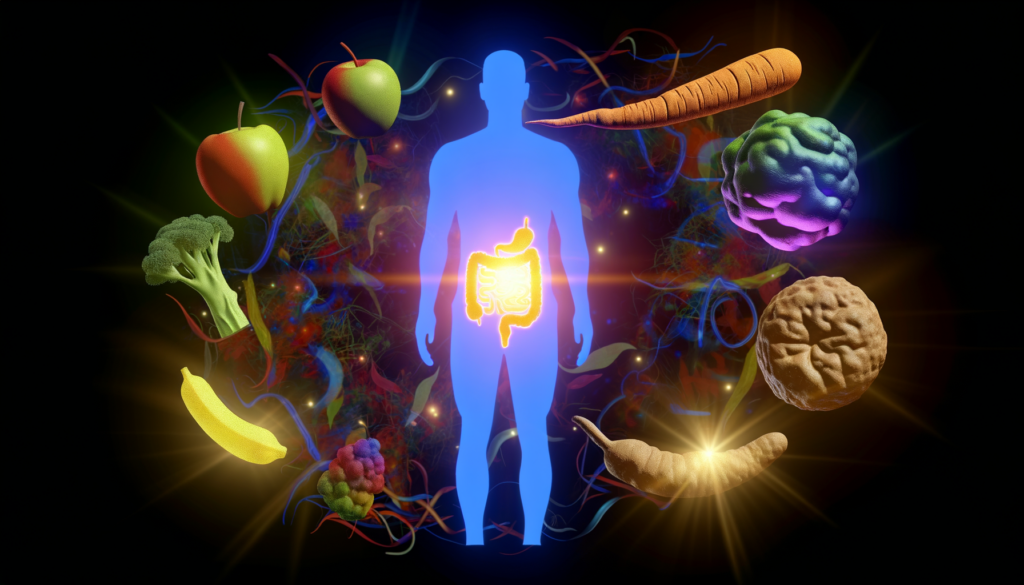Understanding the Interplay Between Calorie Balance and Hormone Health
When it comes to maintaining overall health, the balance of calories and the regulation of hormones are intricately linked. The endocrine system, which includes glands such as the pituitary, thyroid, parathyroid, and adrenal glands, plays a crucial role in this balance. Here, we will delve into how calorie balance affects hormone health and regulation.
The Role of Hormones in Appetite and Metabolism
Hormones are signaling molecules that regulate various aspects of health, including appetite, metabolism, and energy balance. Key hormones involved in appetite control include ghrelin, motilin, neuropeptide Y (NPY), insulin, leptin, and glucagon-like peptide-1 (GLP-1).
– **Ghrelin**: Often referred to as the “hunger hormone,” ghrelin stimulates the hypothalamus to increase food intake. It also plays roles in the sleep-wake cycle and glucose metabolism.
– **Motilin**: Produced in the small intestine, motilin induces intestinal contractions that signal the brain to initiate food intake, especially during fasting states.
– **Neuropeptide Y (NPY)**: Released by the brain, NPY stimulates food intake and is regulated by other hormones.
Impact of Calorie Balance on Hormonal Regulation
Calorie balance, whether through caloric restriction or excess, significantly influences hormonal levels and their regulatory functions.
### Caloric Restriction
Caloric restriction can lead to changes in hormone levels that affect appetite and metabolism. For instance:
– **Ghrelin and Leptin**: Caloric restriction increases ghrelin levels, stimulating hunger, while decreasing leptin levels, which normally signal satiety. This imbalance can make it challenging to maintain weight loss over the long term.
– **Insulin and GLP-1**: Caloric restriction can improve insulin sensitivity and increase GLP-1 levels, which help in glucose metabolism and weight control.
### Caloric Excess
On the other hand, consuming excess calories can disrupt hormonal balance in several ways:
– **Cortisol**: Overeating and stress can elevate cortisol levels, which have an appetite-stimulating effect and contribute to weight gain.
– **Insulin Resistance**: Excessive calorie intake, especially from high-glycemic foods, can lead to insulin resistance, a precursor to type 2 diabetes and obesity.
Lifestyle Factors Influencing Hormone Regulation
Several lifestyle factors, in addition to calorie balance, play a critical role in hormone regulation.
### Exercise
Regular exercise, including both endurance and resistance training, can positively influence hormone levels. Exercise:
– **Improves Insulin Sensitivity**: Enhances the body’s ability to use insulin effectively, reducing the risk of insulin resistance and type 2 diabetes.
– **Regulates Ghrelin and Leptin**: Exercise can help balance ghrelin and leptin levels, supporting weight management.
### Sleep
Adequate sleep is essential for maintaining hormonal balance. Poor sleep quality and duration can:
– **Increase Ghrelin**: Lead to higher ghrelin levels, increasing hunger and appetite.
– **Decrease Leptin**: Result in lower leptin levels, reducing feelings of fullness and satiety.
### Psychological Stress
Chronic psychological stress can significantly impact hormonal balance. Stress:
– **Elevates Cortisol**: Increases cortisol levels, which can stimulate appetite and contribute to weight gain.
– **Disrupts Insulin and GLP-1**: Can impair insulin sensitivity and reduce GLP-1 levels, affecting glucose metabolism and weight control.
Nutritional Influences on Hormonal Balance
Nutrition plays a pivotal role in maintaining hormonal balance. Here are some key nutritional considerations:
### Macronutrient Composition
The composition of meals, including the balance of proteins, carbohydrates, and fats, can influence hormone levels. For example:
– **Protein**: Moderate protein intake can help regulate ghrelin and leptin levels, supporting satiety and weight management.
– **Fats and Carbohydrates**: Consuming lower-fat and lower-glycemic foods can help maintain insulin sensitivity and reduce cortisol levels.
### Specific Nutrients
Certain nutrients are essential for hormone production and regulation. For instance:
– **Selenium, Iodine, and Iron**: These nutrients are crucial for thyroid hormone synthesis and metabolism. Adequate intake supports healthy thyroid function, which is vital for metabolism and energy balance.
Case Studies and Real-World Examples
Understanding the practical implications of these concepts can be seen through various studies and real-world examples.
### Weight Loss Programs
Studies have shown that weight loss programs that incorporate lifestyle changes such as regular exercise, adequate sleep, and balanced nutrition are more effective in the long term. For example, a study on the effects of GLP-1 receptor agonists showed significant weight loss over an 82-week period, highlighting the importance of hormonal balance in weight control.
### Personalized Approaches
A personalized approach to weight management, involving a team of professionals including physicians, psychologists, nutritionists, and exercise physiologists, can be highly effective. This integrative approach considers all aspects of obesity and hormonal balance, leading to more sustainable weight loss outcomes.
Conclusion and Next Steps
Maintaining calorie balance and ensuring proper hormonal regulation are crucial for overall health and well-being. By understanding the interplay between calorie intake, lifestyle factors, and nutritional influences on hormone levels, individuals can make informed choices to support their health.
For those looking to manage their weight or improve their metabolic health, using tools like the Calorie Calculator Cloud can be highly beneficial. This tool helps in tracking calorie intake and ensuring a balanced diet, which is a key component of maintaining hormonal balance.
Additionally, considering the various Calorie Calculator Plans available can provide a structured approach to achieving and maintaining a healthy weight.
In summary, achieving and maintaining a healthy weight is not just about calorie restriction but about creating a holistic balance that includes regular exercise, adequate sleep, and a balanced diet. By addressing these factors, individuals can better regulate their hormones and achieve long-term health benefits.
If you are interested in learning more about how to balance your calorie intake and improve your hormone health, you can explore other resources on our website, such as our blog posts on how to lose weight with a calorie deficit and the importance of macronutrient balance.








